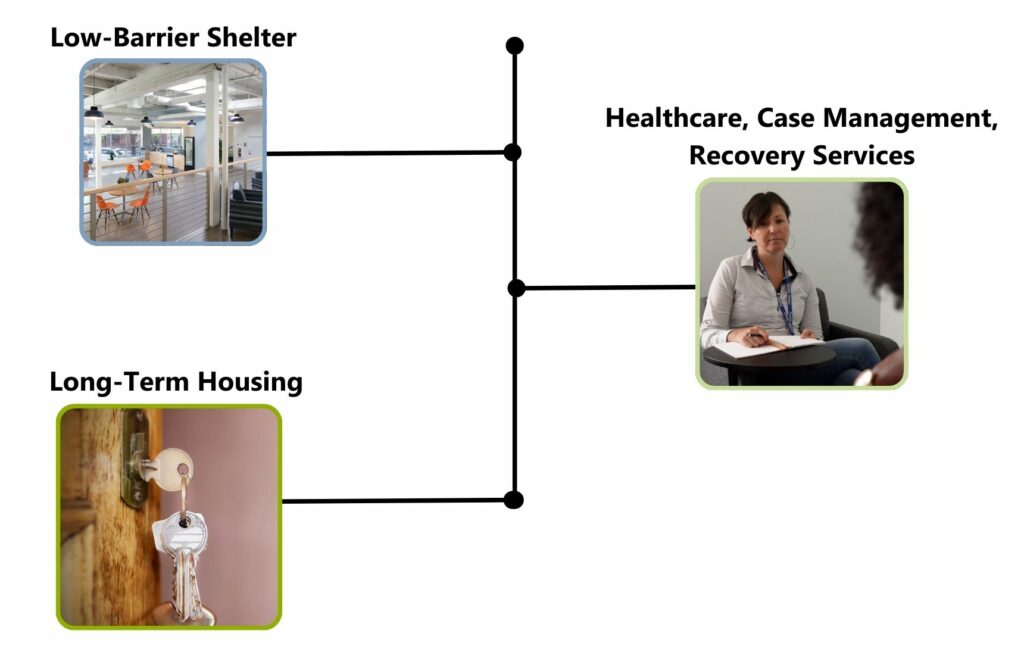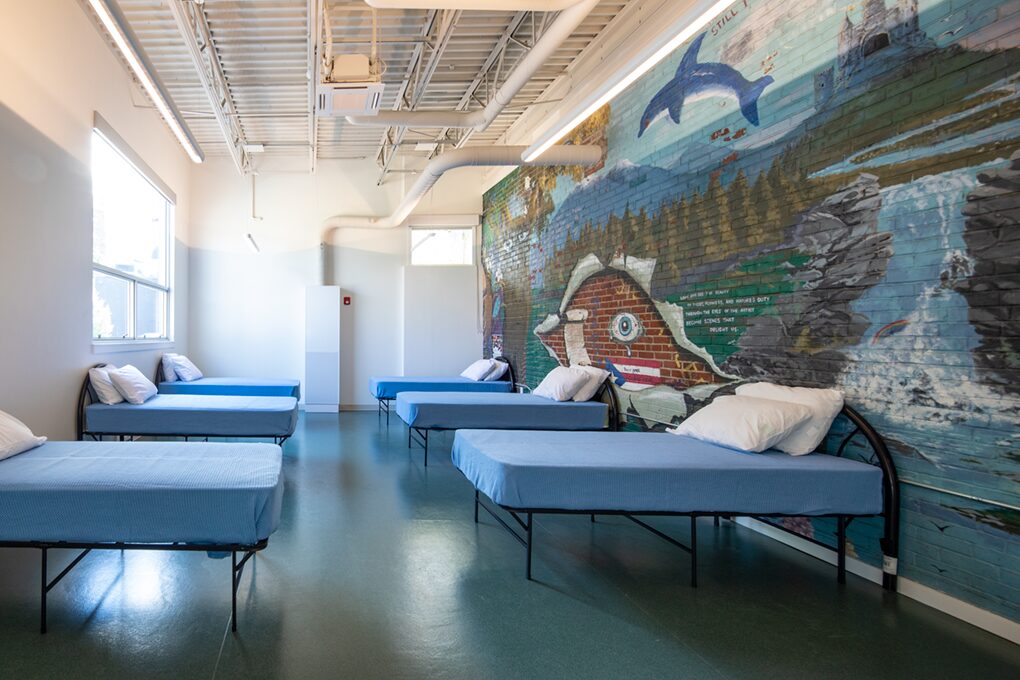Maine is experiencing a homelessness crisis, and our critical low-barrier shelters may close without sustainable and ongoing funding.
The Committee on Appropriations and Financial Affairs just approved one-time funding for low-barrier shelters. We thank the AFA Committee for their support; however, emergency and low-barrier shelters need ongoing, annual funding to remain open and operational.
We need you to tell the AFA Committee TODAY you support ONGOING funding for low-barrier shelters! Reach out to the committee with the drafted email below or with a personalized message.
Hello Senator Rotundo and Representative Sachs,
I am a Maine resident, and I am writing to you today on behalf of Preble Street to express support for $2.5M in ONGOING, ANNUAL funding for emergency shelter and low-barrier shelters.
Maine is experiencing a homelessness crisis, and our critical low-barrier shelters are in danger of closing due to a lack of sustainable funding, operating at a yearly four-million-dollar cumulative deficit.
Emergency shelters and low-barrier shelters are a vital part of any healthy community.
Please support this critically important funding to keep our emergency shelters and low-barrier shelters open and serving the community.
Thank you,
Please contact AFA Committee Members TODAY!
Senator Margaret Rotundo of Androscoggin – Chair (D – Senate District 21)
Senator Jill Duson of Cumberland (D – Senate District 27)
Senator Richard Bennett of Oxford (R – Senate District 18)
Representative Nathan Carlow of Buxton (R – House District 137)
Representative Jack Ducharme of Madison (R – House District 71)
Representative Drew Gattine of Westbrook (D – House District 126)
Representative Melanie Sachs of Freeport – Chair (D – House District 102)
Representative Dan Ankeles of Brunswick (D – House District 100)
Representative Mark Blier of Buxton (R – House District 138)
Representative Benjamin Collings of Portland (D – House District 114)
Representative Jessica Fay of Richmond (D – House District 86)
Representative Ann Matlack of St. George (D – House District 43)
Representative Sawin Millet of Waterford (R – House District 81)
Why are low-barrier shelters so important?
Low-barrier shelters are the emergency rooms in the journey from shelter to housing. They are the primary entry point to healthcare for unsheltered Mainers as well as outreach, case management, and recovery programs and services, either by providing those services on-site or through community partners.

There are only five private, low-barrier shelters in Maine: Bangor’s Hope House Health & Living Center in Bangor, operated by Penobscot Community Health Center (PCHC); Waterville’s Mid-Maine Homeless Shelter & Services (MMHSS); Portland’s Milestone Recovery, Preble Street’s Elena’s Way Wellness Shelter, and Florence House Women’s Shelter.
A low-barrier shelter accepts someone regardless of sobriety, treatment for mental illness, or history of criminal convictions, including registration on the sex offender registry. Low-barrier shelters generally serve those with the most significant challenges, including acute mental illness, substance use disorder, and severe physical health problems. These shelters across Maine are currently at capacity, severely limiting access to the care and services they provide.

The Importance of Low-Barrier Shelters in Our Community
What does a low-barrier shelter look like? At a time when unsheltered homelessness is increasing exponentially in our community and the shortage of low-barrier shelter beds has created a state-wide crisis, Elena’s Way and Florence House are a model for how we can take care of the most vulnerable people in our community. The staff

More than Just Pottery
Art is Healing “Start at the bottom and pinch and turn uncluttered. And slowly work your way up. And you want a pretty thin wall.” It’s a cold Wednesday morning in January, but inside Elena’s Way Wellness Shelter, it’s bright and warm. In the shared area, tables are pulled together, and 10 clients and staff

Low-Barrier Shelter Funding Testimony by Mark Swann to Joint Select Committee on Housing
Delivered December 5, 2023 Good morning, Senator Pierce, Representative Gere, and members of the Joint Committee on Housing, thank you so much for inviting me to speak to you today. My name is Mark Swann, and I am the Executive Director at Preble Street, a nonprofit human service agency with over fifteen programs serving the

